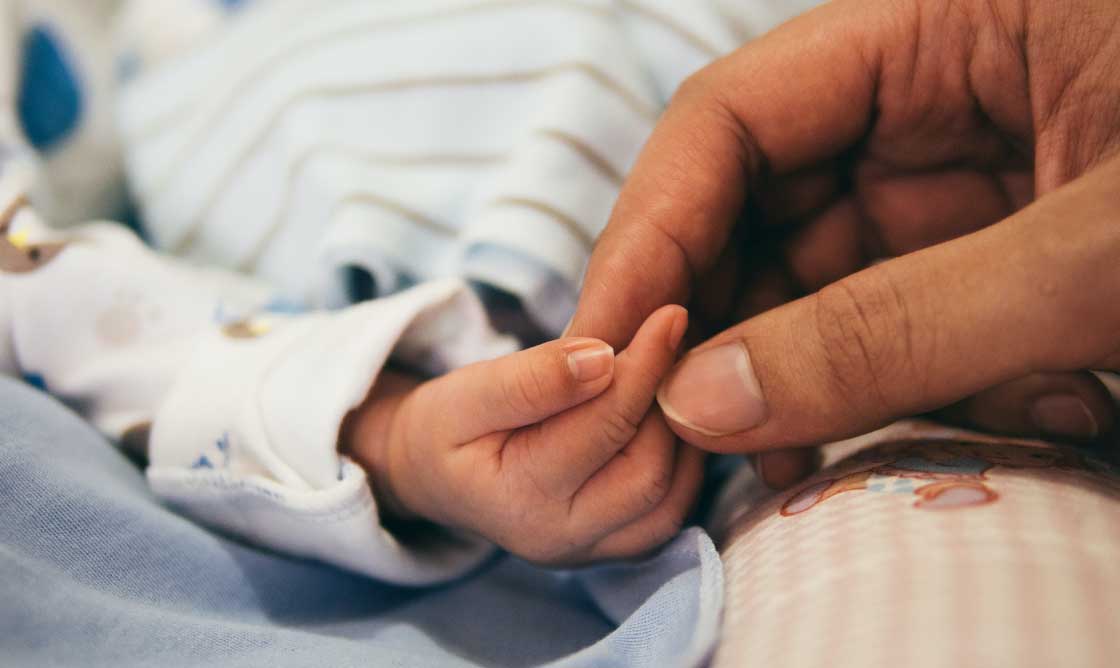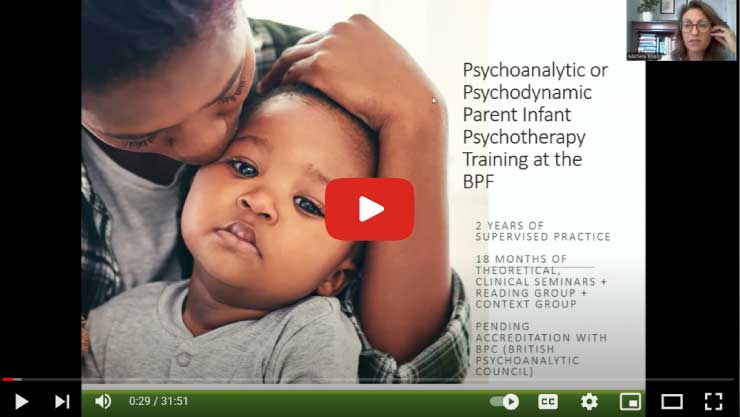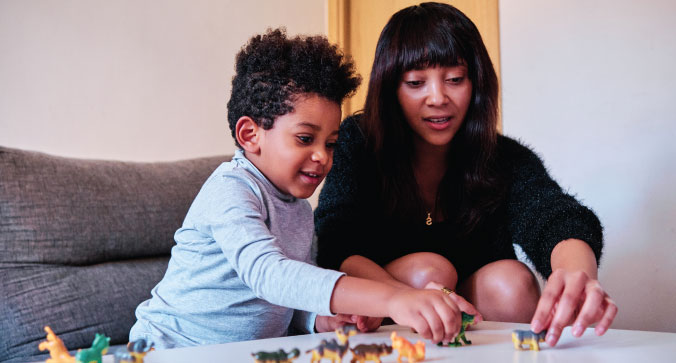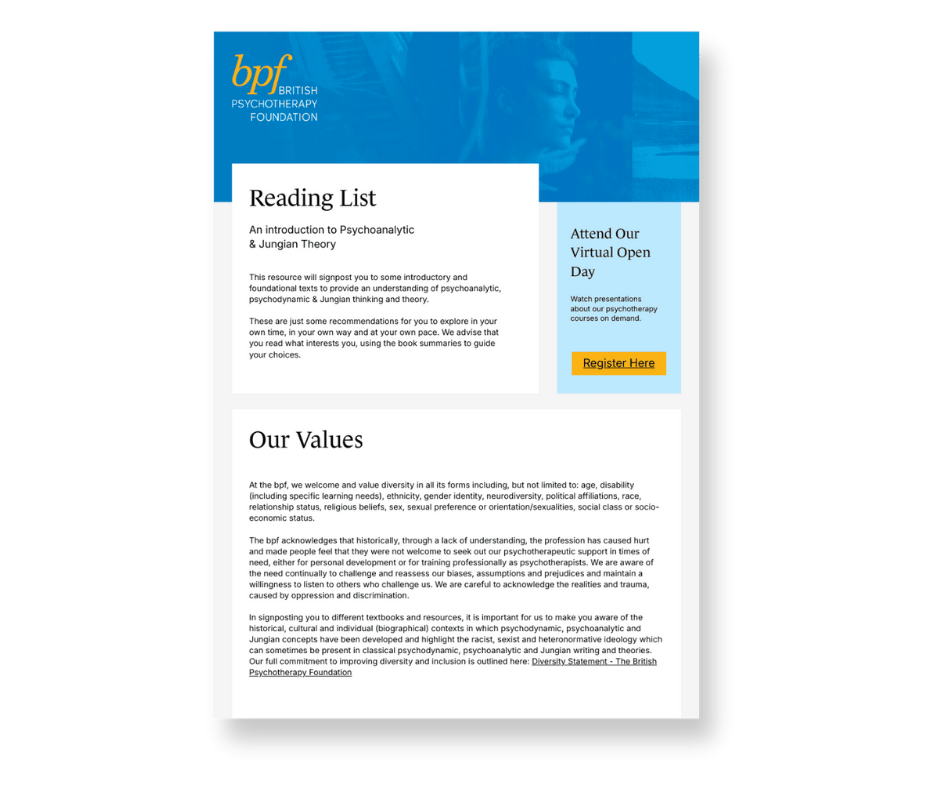
Psychodynamic or Psychoanalytic Parent-Infant Psychotherapy
Hybrid Learning
This new specialist training will prepare you to work as a Psychodynamic or Psychoanalytic Parent-Infant Psychotherapist (PPIP). During this 2-year course, you will draw upon psychoanalytic theory, developmental psychology, and other contemporary ideas about infant mental health and parent-infant relationships to offer PPIP to parents and infants under supervision. This work can take place from pregnancy through to the child’s second year. This course is delivered in a hybrid format with a mix of online and in-person study.
This training is accredited by the BPC (British Psychoanalytic Council). Graduates of the training may join the professional association of psychoanalytic parent infant psychotherapists (the PPIP Society) at the bpf, as well as the BPC register.
Upcoming Event:
11th September, 2025 – Introduction to Parent Infant Psychotherapy Training (accredited by the BPC) (Online)
Applications for this course are now open.
- Course content
- Course structure
- Entry requirements
- FAQs
- Resources
- Course fees
- Access
- Apply
The principles and practice of PPIP will be taught through a mixture of theoretical seminars, clinical presentations and supervision of clinical cases. Once a month for 18 months, there will be an in-person teaching day with a speaker and topic, clinical case discussion, reading group, context group and group supervision. There may be occasional additional focus days added for master classes from Senior members of the profession. Group supervision will continue weekly online for 2 years. The specialist PPIP approach encourages the therapist to focus on the relationship between parent/s and baby as the “patient”, and aims to ensure therapists learn to privilege the baby as the subject of the intervention.
The training consists of four training cases of parents and their (unborn) infants 0-2, with weekly group supervision online, and once monthly, a full day’s attendance in person at the BPF for:
– Interactive taught seminars
– Clinical case presentations
– Reading seminars
– Context group
– Group supervision
The core of the training in will be your work with four training cases.
Clinical training cases
Trainees are required to see 4 training cases under supervision on a weekly basis, they will need to meet a number of different criteria which is set out in the Training Handbook. Two routes are offered for seeing cases. The first is to see training cases at the trainee’s place of employment, with the support and case management of the employer.. The second is an honorary placement with an NHS Perinatal MH, PIMHS , PAIRS, PIP or similar team organised independently or with our support. (The course has some arrangements in place in London for placements and can support the trainee).
Additionally :
- Seminars- In person There will be a series of introductory and ongoing seminars on topics relevant to the PPIP trainees, encompassing the theory and practice of PPIP, and specialist topics such as working with the baby, assessing risk in the relationship, perinatal states of mind etc.
- Clinical case presentations -In person The clinical presentations are the forum in which we invite senior PIP professionals/ tutors on the course to present a case for in-depth discussion, and are an opportunity for the trainees to be exposed to the approaches and clinical work of senior members in the profession. The discussions aim to maintain a live process of elaboration of technique and theory in relation to the model. Trainees are encouraged to participate in the discussions.
- Context Group – In person Becoming a PPIP therapist entails both personal and organizational adjustments. The context group is a discussion forum for the whole trainee cohort to come together and assist one another in the transition to the role of parent-infant psychotherapist. It is a forum which focuses on contextual issues such as team, organization, and referral pathways, as well as reflecting on personal developments and shared practice or network dilemmas.
- Supervision (small groups, weekly, hybrid) Supervision is the core element of the training and takes place weekly, in small groups online for 3 weeks of the month and a once-monthly-meeting in-person at the BPF. Each trainee presents clinical case material of parent-infant psychotherapy to the supervision group, usually by showing filmed session material and/or using process session notes. Trainees see four trainign cases across the 2 year training. They are encouraged to reflect on their conceptualisations, interventions, and countertransference to the material in the session, and also to each other’s presentations. Cases are presented with an emphasis on the micro-moments – helped by analysing filmed sessions. Safeguarding and networking issues are also thought about carefully in the group. A focus on the baby’s experience and the clinician’s contact with the baby is at the heart of the work. This emphasis also marks the transition in focus for the practitioner who is learning how to be a parent-infant psychotherapist.
Additional Requirements:
Written work
Session notes Trainees are required to keep updated session notes on each of their cases for supervision purposes. The first session must be written up in detail and handed into the supervisor. Subsequent notes need to be detailed enough to give the reader an idea of what transpired in the session in terms of both process and content. Once the trainee has arranged GDPR compliant consenting permisision to film sessions, filmed material will form the basis of supervision instead of notes.
Reflective Learning Log (RLL) A central aim of the course is to enhance the trainee’s self-reflective reflective capacities in this field of work. To this end, trainees will be required to maintain an ongoing log of their experience in relation to conceptual learning, clinical work and self-development. Writing in the log is seen to be a process of free-associative recording of the process of learning and self-reflection in the course of the training. At the end of the training, a summary of the RLL is submitted with the final paper. The summary is intended to give the Training Committee an overview of the trainee’s perception and processing of their learning experience while ensuring that the trainees’ privacy is respected.
Final paper Submission of a final paper is a requirement for completion of the training. The final paper is expected to demonstrate the trainee’s level of practice and conceptualization at the point of completing the seminars and clinical work.
Review meetings (once per term) The trainee meets termly with teh Course Director adn their supervisor to discuss progress and any difficulties that have arisen and focus on areas that require further development.
Personal therapy Depending on their history of psychoanalytic psychotherapy and current circumstances, trainees are required to be in personal therapy for the duration of the course. The length of time & minimum frequency will depend on past therapy experience and this will be discussed individually in the intake process- see also FAQS. Only analysts registered with the psychoanalytic psychotherapy section of the BPC are accepted as training analysts for the purposes of this course. Fee and payment arrangements are made between the trainee and their analyst.
For trainees who have not yet gained a psychoanalytic qualification /accreditation there are some additional requirements (see also section on Entry Requirements and FAQs):
Introduction to psychoanalytic concepts : Trainees who lack formal training in psychoanalytic theory will be required to complete the bpf Foundations course, an introduction to psychoanalytic concepts and their application to practice (additional charge)
Infant Observation: Trainees who have not completed a psychoanalytic infant observation course will be required to undertake one. This is usually done before commencing the PPIP training. See information here.
- Registration with professional body: Applicants must have current professional full clinical registration (doctoral equivalence) with a recognised professional body such as HCPC, UKCP, BPC, ACP, or BPS.
- Personal psychoanalytic psychotherapy: Applicants must have had a minimum of two years of personal psychoanalytic psychotherapy with a psychoanalyst/psychoanalytic psychotherapist registered with the British Psychoanalytic Council (BPC) psychoanalytic section.
- Accreditation: for registration with the BPC there are two routes: for the psychodynamic PIP registration: once weekly personal psychotherapy is sufficient, for those wishing to become registered as psychoanalytic parent infant psychotherapists, 4 x weekly therapy is required.
- Work experience: Applicants must have at least four years of experience of working therapeutically as a clinician. Experience of working with children and infants is desirable but not essential.
- Infant observation: Applicants are required to have completed an observation course in psychoanalytic parent-infant observation for a minimum of one year. Applicants may undertake this observation alongside the PIP Specialist Training if they have not yet done so.
Eligible candidates will have Doctoral level training or equivalent in:
- Clinical or Counselling Psychology (BPS) Professional registration with HCPC
- Child and Adolescent Psychoanalytic Psychotherapy (ACP or BPC)
- Adult Psychodynamic or Psychoanalytic Psychotherapy, BPC (Jungian Analyst, Adult Psychoanalyst; Psychoanalytic Psychotherapist or UKCP (under the Council for Psychoanalysis and Jungian Analysis section)
- Systemic Family Therapy (UKCP College of Family & Systemic Psychotherapists)
Training Pathways
There are 2 pathways: Psychoanalytic and Psychodynamic. The difference is the frequency of personal analysis you have had or are having with a BPC (British Psychoanalytic Council) registered analyst. If for ex you have already had 4 years + of 4 weekly analysis you will be eligible to apply for a psychoanalytic registration. If you have had 1x or 2x weekly for 2 years + you will be eligible for the psychodynamic section.
This course requires monthly attendance for one day per month in person at the bpf. The weekly supervision is online.
Eligibility
Do I need to be a psychologist- counselling or clinical, or a child/adult psychotherapist or psychoanalyst to be eligible? Yes. You will need to have current professional clinical registration with a recognized professional body such as HCPC (Health and Care Professions Council), UKCP, BPC, ACP (Association of Child Psychotherapists), or BPS.
Do I have to have a psychoanalytic background to take the PIP (Parent Infant Psychotherapy) specialist training? No, if you do not have a psychoanalytic background then you can take our ‘Foundations’ course and a psychoanalytic Infant Observation course. NB You would need to have had 2 years and be in ongoing minimum 1x weekly psychoanalytic psychotherapy with a BPC accredited psychoanalytic psychotherapist.
Will I need to be in psychoanalytic therapy/ psychoanalysis? Yes, The BPC position on training therapy is that you must have had previously or be in psychotherapy with a psychoanalytic psychotherapist for at least 2 years, minimum once weekly psychoanalytic psychotherapy (up to 3-4 x weekly for a registrant who wishes to become registered as psychoanalytic vs psychodynamic PIP).
What if I have had a personal / training analysis (4-5 x weekly) in my previous training for over 5 years? if you are already analytically trained (Adult/Child Psychoanalytic Psychotherapist) and have had e.g. 5 years + of personal psychoanalysis then we require you to have 1 x monthly (min) sessions with a psychoanalytic Psychotherapist (BPC accredited) as ongoing consultations during your training.
I have trained as an art psychotherapist/ psychodynamic couple therapist registered with BACP. The BACP is not listed, am I eligible to apply? Or I am a Social Worker with HCPC registration? Unfortunately, these are not eligible prerequisite trainings – refer to the Q above.
Finance
Can I pay in instalments? Yes, if you would prefer to make payment in instalments then this is fine, just make sure you let the course administrator know. They can the suggest a payment schedule.
Are there any bursaries/scholarships? Currently not.
Time
What is the time commitment for this training throughout the 18 months?
The average time commitment is approx. 8 hours a week in term time. This involves all taught hours and self-learning but can increase if you have a full caseload (4) of training cases and personal therapy. Please note that the week (3rd Thurs of the month) when the teaching and groups take place will involve attendance at the bpf for the full Thursday over a period of 18 months. Supervision is weekly online for 24 months (additional 6 months after the taught aspect is over).
Can I apply if I am based abroad? As you would need to attend the course every month in person, this may be challenging but could be discussed. The need for translation of case material brought to supervision is also to be thought about if you are not working in English.
Attend our Virtual Open Day to watch a presentation about this course.

Blogs
Frequently Asked Questions About Psychodynamic Psychotherapy
How to become a psychotherapist in the UK – The British Psychotherapy Foundation
My Journey as a Black Trainee in Psychodynamic Psychotherapy – The British Psychotherapy Foundation
How Couples Psychotherapy Can Transform Relationships – The British Psychotherapy Foundation
Why become a psychotherapist? (part I)
Why become a psychotherapist? (part II)
Videos
What’s it like to be a psychotherapist? Psychoanalytic psychotherapist (youtube.com)
What’s it like to be a psychotherapist? Child and Adolescent Psychotherapist (youtube.com)
What’s it like to be a psychotherapist? Jungian Analyst (youtube.com)
Please note that all fees will increase annually in line with inflation.
Additional costs:
Personal therapy
bpf Trainee Membership
For more information about fees, and paying in instalments, please contact [email protected]
The building has limited access – please call us on 020 8452 9823, or email [email protected], to discuss your needs.
- The next intake is January 2026 and applications are now open. Please download and complete our application form here.
- To register your interest for this training, please email: [email protected]
- The application fee of £75 should be paid when your application form is submitted. Please click here to make a payment
- Those shortlisted will be invited to an interview.
- Applicants may also be required to have a clinical interview with the training consultant
- A final offer of a place on the training will be offered at the discretion of the interviewers
- An Open Evening will take place on April 3rd 2025, click here to register
“I had eagerly awaited the commencement of The Psychoanalytic Parent Infant Psychotherapy Training at the bpf, and it certainly did not disappoint.
The training offered an incredible immersion in the theory, practice, and supervision of the perinatal period. The standard of teaching was exceptional, and the course structure fostered an environment conducive to our growth and development as clinicians. Regular weekly supervision sessions allowed us to strengthen our peer relationships while deepening our learning.
Although I had some prior experience as a parent infant psychotherapist from my work as a child psychotherapist, undertaking this specialist training felt like a crucial step in acquiring expertise, enhancing my doctoral training. It also underscores the essential skills and depth required for working with parents and infants during the perinatal period.”
PIP Student

New Courses
- Awakening the Inner World: An Experiential Weekend for Beginners – (Taught in London, Summer & Autumn 2026)
- Intensive Summer School: Foundations of Psychoanalytic & Jungian Psychotherapy – (Taught Online, July 2026)
- Reading Group – Psychoanalytic Psychotherapy Association – (Taught Online, Rolling Entry)
- Psychodynamic and Jungian Theory for Qualified Practitioners (Taught Online, September 2026)
bpf North:
- Foundation Course (Taught in Newcastle, October 2026)
- Psychoanalytic & Psychodynamic Psychotherapy Training (Taught in Newcastle & Online, October 2026)
Upcoming Events:
- 31st January, 2026 – Barbara Dockar-Drysdale One-Day Conference (Public Registration Page) – Time: 10:00 – 14:45. Venue: Hybrid event – BPF Mapesbury Rd & Online via Zoom. Price: Public admission fee (In Person) £35, Public admission fee (Online) £25.

Make a £10 Donation – Receive a Psychoanalytic Reading List
Donating supports our mission to make our psychotherapy training, clinical services, and public events affordable, accessible, and more inclusive.
Reading List: Introduction to Psychoanalytic & Jungian Theory
Receive a curated list of 67 essential texts – covering psychoanalytic, psychodynamic, and Jungian theory – ideal for both newcomers and those wanting to deepen their knowledge.

